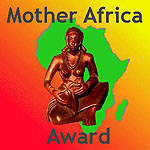
|
|
EQUATORIAL GUINEA

|
|
|
|
|
Other great Links
|
|
More Links
|
|
|

|
|
|
Official Name
|
República de Guinea Ecuatorial
|
|
Located
|
Mid West: Cameroon, Gabon
|
|
Capital
|
Malabo
|
|
Head of State |
President Brig Gen (Ret)
Teodore Obiang Nguema Mbasogo

|
|
Area
|
28,050 sq km
|
|
Population
|
410,000
|
|
Growth rate
|
2.6%
|
|
Languages
|
Spanish French, Pidgin English, Fang
|
|
Currency
|
Central African CFA franc
|
<|
GNP per capita
|
$1,673
|
|
Inflation
|
35%
|
Airlines
(advertise here)
|
from Europe: ________________
from Asia: ________________
from USA: ________________
|
Hotels
(advertise here)
|
Names & Rates per night
______________________
______________________
|
|
USAfrica Agent
|
______________________
|
|
Country Advertiser
|
If you want to become
the Country Advertiser
your logo comes here.
|
|
|
A land of tropical forest with cloud covered volcanoes, the only country in Africa with Spanish colonial architecture. In Malabo, Frederick Forsyth wrote his novel The Dogs of War.
Economy:
Equatorial Guinea remained an economy based largely on agriculture production. Cocoa and coffee were the main agricultural exports of the 1980s, particularly before the development of the petroleum reserves off the north coast of Bioko, and cocoa is still key for employment. Over the last decade, Equatorial Guinea has increased its oil production. Oil now accounts for 60 percent of the country's GDP and 90 percent of its total exports. With this financially lucrative export, the country's economy is growing, but critics say the wealth is not filtering down to those who need it most. Timber became an important source of foreign exchange in the mid-1980s. Deteriorating terms of trade in the early 1990s took a toll on the country's main exports, which recovered after the CFA devaluation of 1994. The most significant change in the country's economy has taken place since 1996. Gas reserves, discovered in the early 1980s, were only the beginning of what has dramatically transformed the Equato-Guinean economy. An important oil reserve came into production in late 1996, enabling oil to outstrip timber and agriculture as a percentage of GDP and as a share of total exports. Over 60 percent of GDP and over 90 percent of total exports originated in the oil sector in 1998, and this growth is expected to continue. The expansion of the petroleum sector has been the impetus behind the recent dramatic growth in GDP; 76 percent in 1997 and well over 20 percent in both 1998 and 1999, in turn pushing the country to GDP per capita levels of above US$1,500. In late 1999, Equatorial Guinea ceased to be an IDA country and became eligible for IBRD borrowing. However, the benefits of oil discovery and exploitation have not yet filtered to the mass of the population. This to a large extent is the result of weak and non-transparent public finance management organization and the difficulties encountered in defining a development strategy that would help the country avoid the pitfalls of other oil-producing developing countries. Mobil has two rigs offshore of Bioko Island. If the income of this oil is spent wisely, it could transform the lives of the country dramatically
History:
Colonized by the Spanish, the island of Fernando Po (now called Bioko) developed a flourishing economy based on cocoa production in the 1950s, raising GNP per capita to US$466 by 1965. Bioko and the mainland province of Rio Muni were joined to form Equatorial Guinea in 1963, and granted partial self-government. Full independence was achieved in October 1968 and Francisco Macias Nguema became the country's first president. President Macias banned opposition parties in 1970, and appointed himself president for life in 1972. The economy deteriorated sharply. In October 1979, he was overthrown and succeeded by his nephew, Obiang. A new constitution was approved in 1982 and in the following year legislative elections were held. Transparency of elections has been a frequently contested event. In early 1996, President Obiang was re-elected to a 7-year term with over 97 percent of the vote, and the President's party won the legislative elections held in March of 1999.
Enabling us to improve the quality of the content, if you have additonal information, remarks or suggestions, please share it with us by e-mail.
Last update: 24 April 2008
|
|